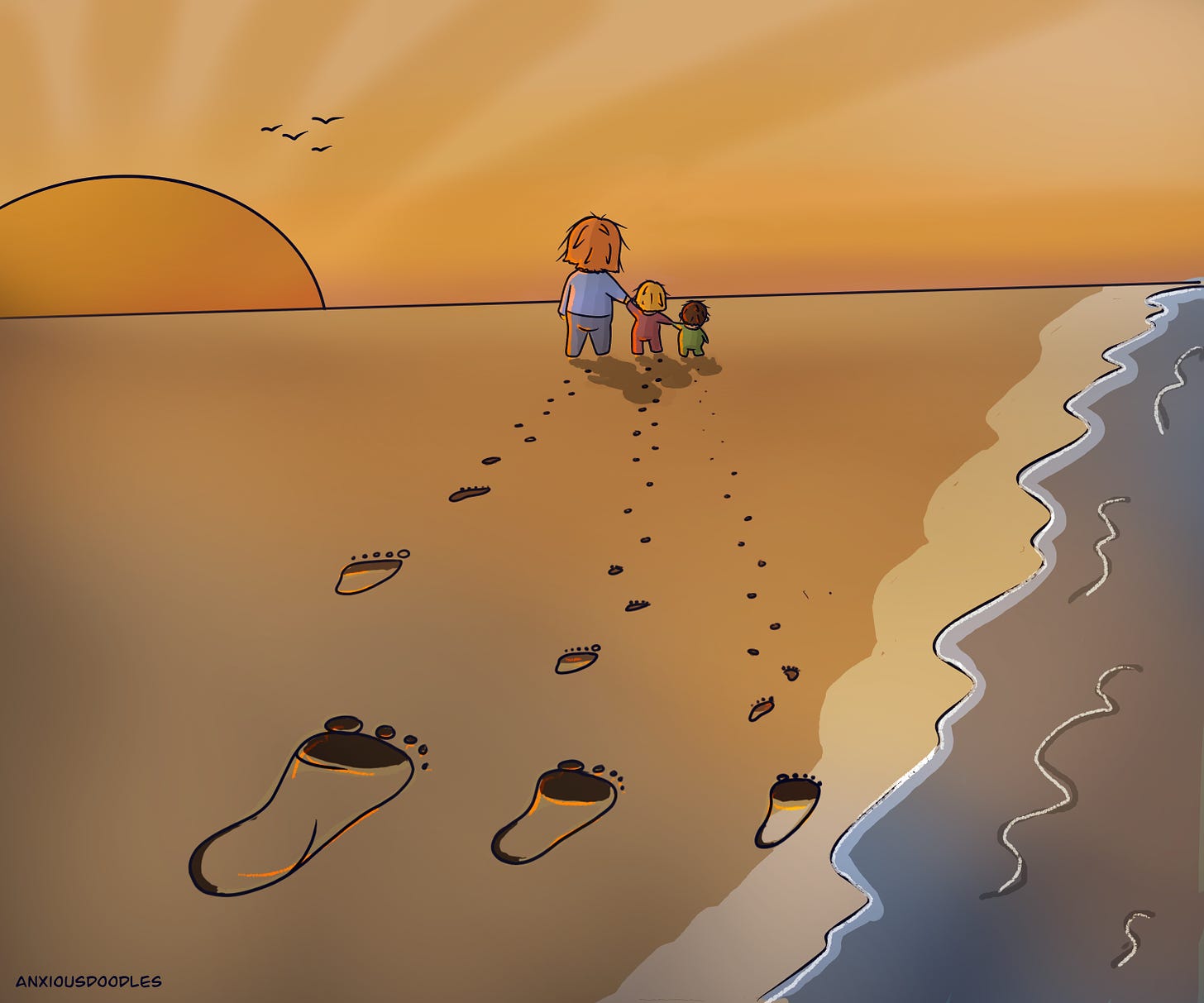Leave Only Footsteps, Take Only Memories: A Mindset to Protecting Our Planet, Before It's Too Late.
A personal reflection on the profound impact this mindset can have on our lives, our children's lives and our world.
“Take only memories, leave only footprints.” This phrase became my quiet mantra during my travels in my early 20s, guiding me through moments of presence, gratitude, and peace. It’s been nearly 15 years since my days as a beach bum scuba diver, yet this wisdom still resonates deeply within me. Today, I want to share my thoughts on the profound impact this mindset can have on our lives and our world. This is more of a reflection, a message straight from my soul, without the usual research and hyperlinks that shapes my other articles.
The thing is, the idea of leaving only footsteps and taking only memories has long been a guiding principle for those who love and respect the natural world. It’s a simple yet powerful reminder that when we venture into nature, we are guests—temporary visitors in a world that existed long before us and will continue long after we're gone. But this carries a deeper, more urgent meaning, one that speaks directly to the survival of our planet and the legacy we leave for future generations.
Although it may appear as an overly used slogan for travellers and instagramers, at its core, it's about minimizing our impact on the environment. It encourages us to tread lightly, to avoid disturbing the delicate balance of ecosystems that sustain life on Earth. When we go into nature, whether it’s a hike through a forest, a day at the beach, or a weekend camping trip, we are walking through habitats that countless species call home. Every piece of litter we leave behind, every plant we uproot, every rock we disturb has the potential to disrupt the lives of the creatures that live there.
But taking only memories isn’t just about reducing our physical impact on the environment. It’s also about the mindset we carry with us. To take only memories is to approach nature with humility and reverence, to understand that we are not above the natural world but a part of it. It’s a call to be mindful, to appreciate the beauty of our surroundings without feeling the need to possess or alter them.
In today’s world, where the effects of climate change, habitat destruction, and biodiversity loss are becoming increasingly apparent, the wisdom of leaving no or little trace is more relevant than ever. Our planet is under attack, and every action we take has a ripple effect on its health and stability.
I guess this phrase also serves as a guiding principle for sustainable living. It reminds us to consume less, to waste less, and to cherish the natural world without exploiting it. It’s about recognizing that our survival is inextricably linked to the health of the planet. The air we breathe, the water we drink, the food we eat—all of these come from the Earth. If we continue to take more than we give, we risk pushing our planet beyond the point of recovery.
The choices our future generations make today will shape the world they inherit. If we want to leave behind a planet that is vibrant, diverse, and capable of sustaining life, we must instill in them the values of respect, stewardship, and responsibility.
Teaching our children to understand the depths and poetic nature of leaving only footsteps behind means teaching them to live with a light touch on the Earth, to understand that every action has consequences, and that those consequences extend far beyond their immediate surroundings. It means showing them that the natural world is not a resource to be exploited, but a finite treasure to be preserved.
If there's anything I want my kids to truly understand, it's that they are as much guests here than the rest of all other beings who are housed by our mother Gaia.




